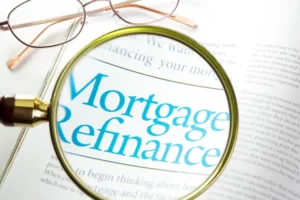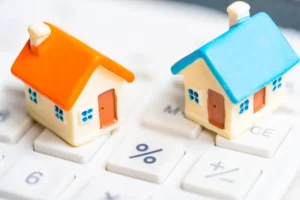The next time you are at a cocktail party or family function and someone smugly tells you that they have paid off their mortgage – odds are they know little about personal finance and will likely limit their personal net worth as a result. After all, who really worries about a mortgage of a couple of hundred thousand dollars when your investment portfolio is a couple of million dollars and could be used to retire your mortgage any day you choose? By deploying this strategy, what you are doing is using other peoples’ money to build your net worth. – Should You Pay off Your Mortgage
Should You Pay Off Your Mortgage Early
There is no shortage of free financial resources available, including financial planning education. In fact, it almost seems like advice and information is as available as fast food.
 Why then does it seem that most people do not understand how to use cash flow and capital effectively? Well, in large part because the quality of the resources and the education available is in question.
Why then does it seem that most people do not understand how to use cash flow and capital effectively? Well, in large part because the quality of the resources and the education available is in question.
For many people, the top financial objectives are to pay off their mortgage and to build their net worth. This is what they are told to do – and this – at least at the surface level – appear to be rational choices, however as we dive in deeper and peel back some layers we can see that these goals may directly contradict one another, and also being mortgage free can be a major detriment to building your net worth.
We hear that people are making a lot of money in the stock market and that we should be contributing more to our RRSP and investments, it has become a hot topic of late.
We only have a finite amount of money available – we can’t possibly do everything, to meet our objective to reach a net worth that brings us to the point where work is something you choose to do rather than need to.
RRSP-versus-Mortgage Debate
The RRSP-versus-mortgage debate has been a long standing one. While there is no clear right answer, here are some clear-cut rules that will enable you to make an informed decision.
The major factors influencing your choices are;
- the mortgage interest rate versus the expected return in the RRSP,
- the investment time horizon versus the mortgage time horizon,
- the availability of RRSP contribution room,
- and the ability to capitalize on mortgage prepayment privileges.
Given an expected RRSP return equal to or greater than the mortgage interest rate, and an investment time horizon equal or greater than the likely mortgage life, maximizing RRSP contributions generally maximizes net worth because the tax-sheltered growth of an RRSP means you get compounded growth for a long period. Conversely, as the mortgage interest rate is greater, or the investment time horizon decreases, it becomes more attractive to prepay the mortgage.
Taken one step further, those of you who are fortunate enough to have used up all your RRSP contribution room should also closely look at whether borrowing to invest outside of your RRSP is a wise decision. While all the same principles stated above apply there are a couple of distinct elements to review. When considering building an investment portfolio outside of your RRSP you need to compare your after-tax rate of return relative to your after-tax cost of borrowing.
If you borrow to invest (with the expectation of gain) then the interest borrowed on that money becomes tax deductible. This means that the real rate of interest to the person borrowing the money becomes (1 less your marginal tax rate percentage) x interest rate on the money borrowed. For someone in the top tax bracket in British Columbia this can reduce the cost of borrowing by nearly 50%.
The next important consideration is to determine your after-tax rate of return. When investing outside of your RRSP it is important to keep in mind that not all investment income/growth is treated equally for tax purposes and the difference will depend largely on your personal tax bracket. As a general rule, in order to optimize your after-tax rate of return you should likely seek capital gains first, dividend income second, and interest income third.
A common misconception in society is that wealthy people do not have mortgages. The odds are that if you know a wealthy person without a mortgage then they likely inherited their money, do not have a good financial advisor, or are highly risk averse. With interest rates at where they are today, paying off your mortgage is likely not a wise financial decision if your hope is to have the highest and best use of your capital (which is the essence of net worth maximization).
In closing, take some solace in this; the next time you are at a cocktail party or family function and someone smugly tells you that they have paid off their mortgage – odds are they know little about personal finance and will likely limit their personal net worth as a result.
After all, who really worries about a mortgage of a couple of hundred thousand dollars when your investment portfolio is a couple of million dollars and could be used to retire your mortgage any day you choose? By deploying this strategy, what you are doing is using other peoples’ money to build your net worth.
At the end of the day, the correct formula for using debt for investing comes back to your investment objectives, personal goals, and risk tolerance. Clearly if your after-tax rate of return is greater than your after-tax cost of borrowing then you are getting ahead financially. Furthermore, if your cash flow allows you take advantage of the above strategies then they can greatly assist you in your retirement planning.
Give us a call on (778) 233-2377 and we would be happy to help! We also have a webinar titled One Property Away that can show you some ways how one investment property can help you accomplish life changing goals.




